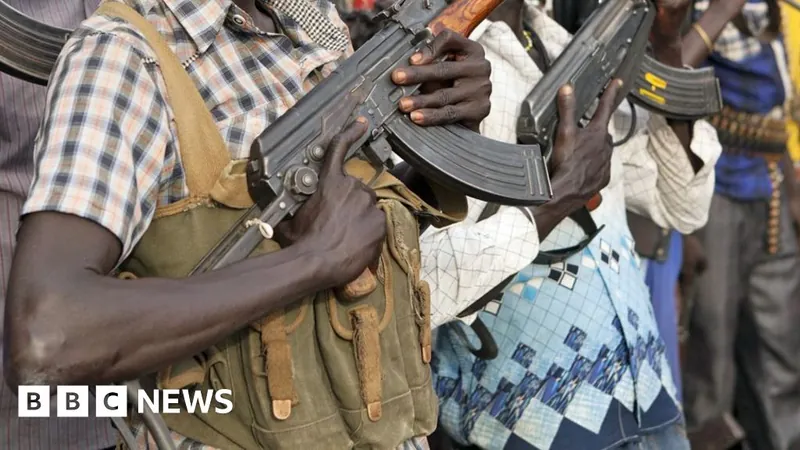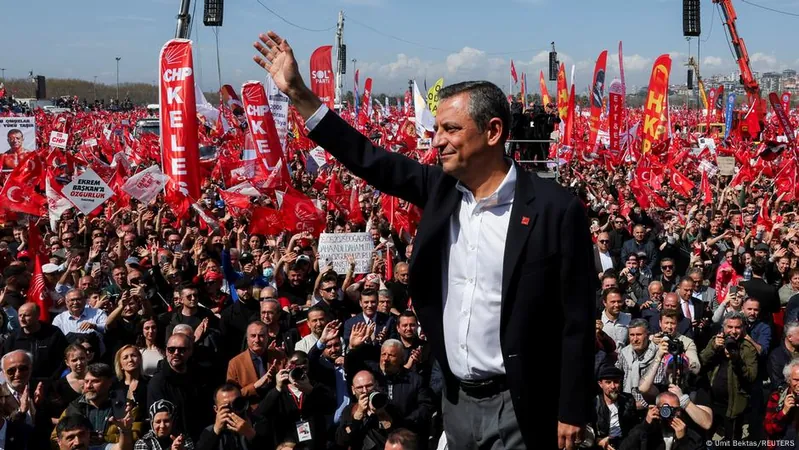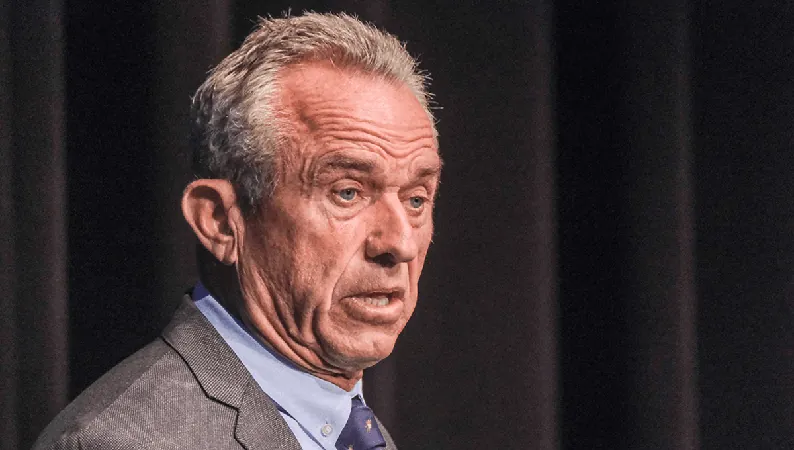
South Sudan on the Brink: UN Warns of Civil War as Barrel Bombs Rain Down in Upper Nile
2025-03-25
Author: Ken Lee
Introduction
In a devastating escalation of violence, South Sudan is facing the terrifying prospect of another civil war as reports emerge of barrel bombs being used in airstrikes. The United Nations has raised alarms, stating that these airstrikes, believed to be carried out with bombs filled with a highly flammable liquid, have resulted in significant casualties and severe injuries among civilians.
UN Concerns and the Situation in Upper Nile
Nicholas Haysom, head of the UN mission in South Sudan, expressed grave concerns following recent clashes between government forces and a rebel group known as the White Army, particularly around a military base in Nasir, a town located in the oil-rich Upper Nile State. The White Army's takeover of this base has led to continuous aerial bombardment since the skirmishes erupted, with casualties reported to be alarmingly high.
Haysom warned that a resurgence of conflict would undo the progress made since the 2018 peace agreement, which aimed to end a civil war that claimed nearly 400,000 lives over five turbulent years. “A conflict would devastate not only South Sudan but the entire region, which simply cannot afford another war,” he stated emphatically.
Escalating Tensions
Tensions have been mounting since early March, when several senior allies of Vice-President Riek Machar were arrested, an action Machar's supporters labeled a "grave violation" of the peace deal. This friction, alongside the ongoing ethnic tensions and sporadic violence, has exacerbated fears of a nation spiraling back into chaos.
Impact on Civilians
Civilians are bearing the brunt of this conflict. Haysom reported that around 63,000 people have been forced to flee their homes due to the relentless bombardments. Eyewitness accounts from local leaders have described the use of "unusual weapons," raising alarms about possible chemical attacks. James Gatluak Lew, the county commissioner of Nasir, accused state forces of executing what he called "chemical bombardments," with local media alleging the presence of ethyl acetate—an accelerant used in explosive devices—at the sites of the attacks.
While government spokesman Michael Makuei insisted that military operations were targeted solely at White Army positions and did not involve civilians, Haysom countered by highlighting the widespread suffering among non-combatants, including women and children.
Political Ramifications and International Response
As South Sudan prepares for elections in the coming year, the violence only escalates, compounded by rampant misinformation and ethnic divisions that further fuel conflict. The UN peacekeeping mission, currently comprising approximately 18,000 personnel, is reportedly engaged in intense diplomatic efforts to avert a return to civil war.
Adding to the complexity of the situation, Machar has alleged that neighboring Uganda is violating the UN arms embargo by participating in airstrikes on South Sudanese soil, further muddying the geopolitical waters. Despite Uganda's claim of deploying troops at the request of Kiir’s administration, Juba has denied any such arrangement, suggesting a potential schism between regional allies.
Conclusion
The international community remains on high alert as the situation in South Sudan escalates, with the UN and other organizations calling for immediate intervention to prevent another humanitarian catastrophe in a country that has already suffered so much. Will the pleading voices of the UN be enough to quell the flames of war before they engulf this fragile nation once again? Stay tuned for updates as this situation develops.



 Brasil (PT)
Brasil (PT)
 Canada (EN)
Canada (EN)
 Chile (ES)
Chile (ES)
 Česko (CS)
Česko (CS)
 대한민국 (KO)
대한민국 (KO)
 España (ES)
España (ES)
 France (FR)
France (FR)
 Hong Kong (EN)
Hong Kong (EN)
 Italia (IT)
Italia (IT)
 日本 (JA)
日本 (JA)
 Magyarország (HU)
Magyarország (HU)
 Norge (NO)
Norge (NO)
 Polska (PL)
Polska (PL)
 Schweiz (DE)
Schweiz (DE)
 Singapore (EN)
Singapore (EN)
 Sverige (SV)
Sverige (SV)
 Suomi (FI)
Suomi (FI)
 Türkiye (TR)
Türkiye (TR)
 الإمارات العربية المتحدة (AR)
الإمارات العربية المتحدة (AR)